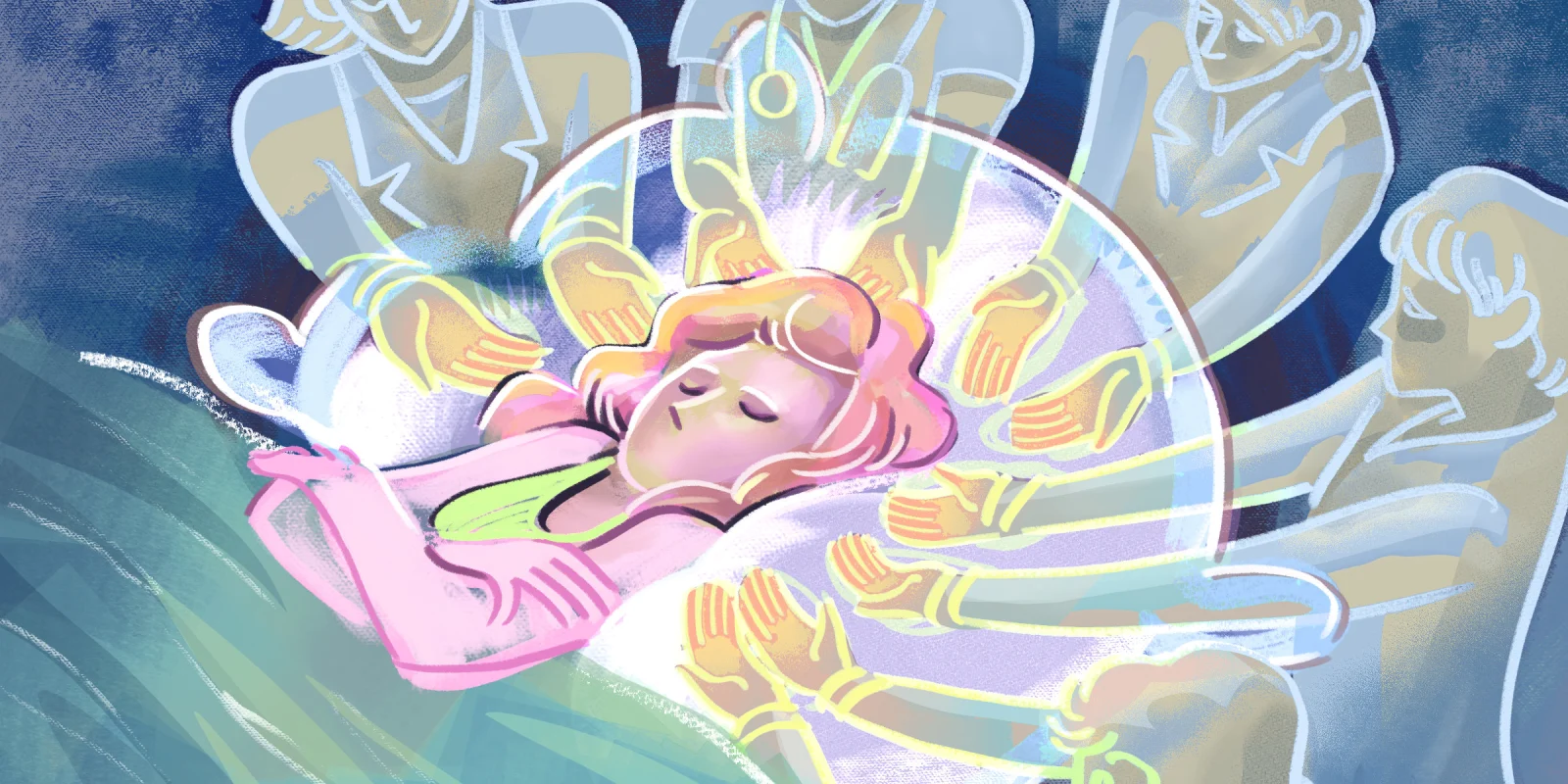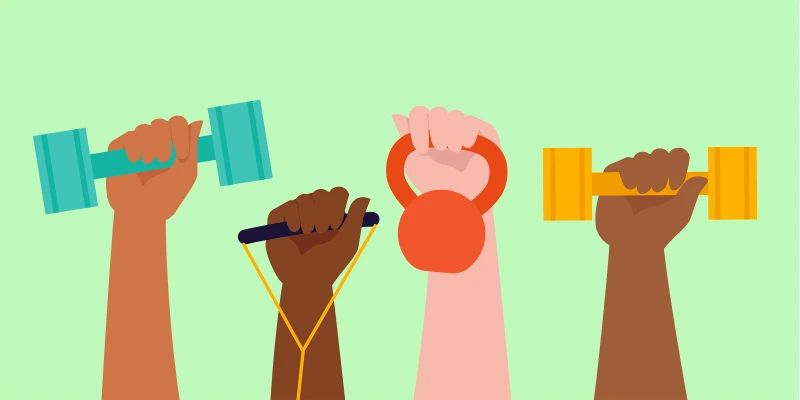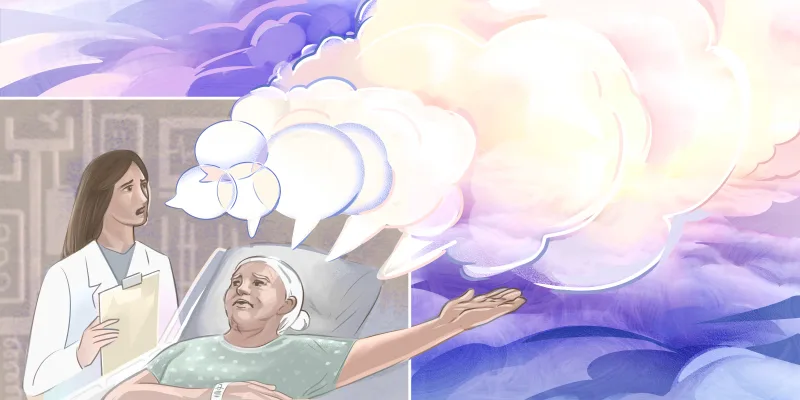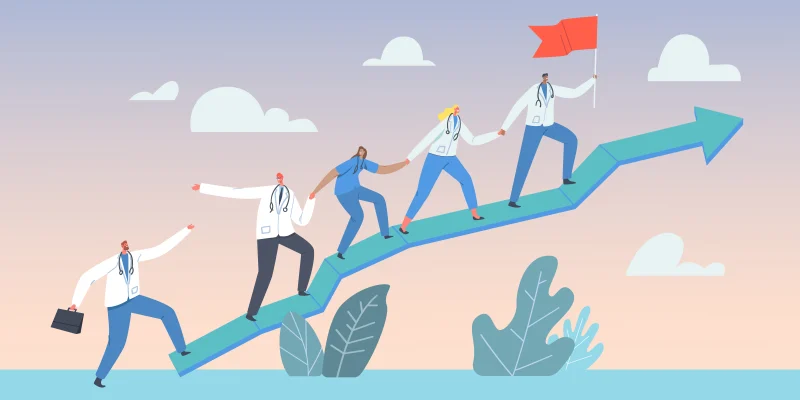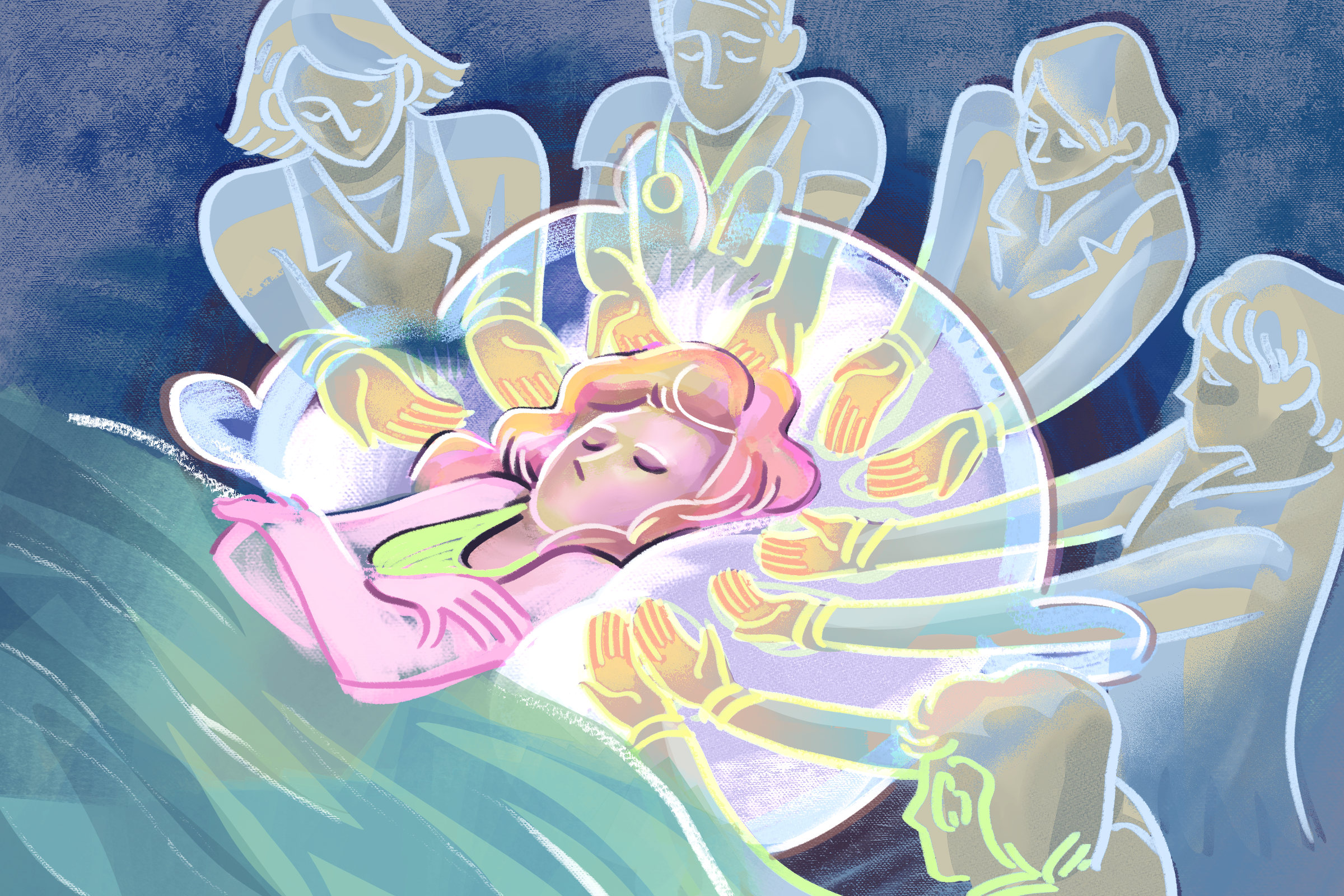
I first met Ramona on the mid-November day that seasonal Christmas carols began blaring through the speakers of my hospital’s noisy lobby. I was beginning a new inpatient rotation as a medicine resident. Ramona was beginning a hospital stay to manage complications of her end-stage ovarian cancer, including an enormous, ascites-filled abdomen.
From the start, Ramona endeared herself to me. She pulled her pain-filled face into a gentle smile every morning as my co-resident and I examined her ballooning belly. She addressed her caretakers as "dear" even as we failed to stop the downward spiral of her disease. She thanked the staff who brought her daily meals, even as her appetite diminished. And her bedside was always teeming with friends and close family — her doting, devoted husband, her terrified teenage son.
As days passed and her clinical state decompensated, there seemed to be less I could offer Ramona. Her bowel regimen was no match for her opiate pain medication, and she suffered from constipation and worsening urinary retention. Her kidneys, crushed under the weight of her abdominal fluid, slowly began to fail as well. One day she turned to me and begged for, “a needle to take out the water,” a palliative paracentesis. My attending agreed.
It was my first attempt at this procedure and I prepared as well as I could. I watched videos, read through instructive articles, and ran through the steps in my mind repeatedly. When the time came, I laid out my instruments with delicate precision and perseverated with my ultrasound seeking a perfect pocket of fluid to tap. With my probe against her taut skin, the screen lit up with only shallow layers of fluid; I searched thoroughly, having absorbed her desperation as my own. A pool of black appeared, and I marked the spot. My attending pulled Ramona’s skin back as I inserted the needle, then let it go ever so slightly as I advanced the catheter, nervously awaiting a rush of fluid, and ideally, relief.
But no fluid flowed. I repositioned. My attending gloved up and gave it a try. But after a few efforts to extract her ascites, it became clear we would not be successful. As we cleaned up, a surge of guilt radiated through me for being unable to help this dying woman take a bigger breath of air or feel a little less discomfort. I knew Ramona was dying—for all the joy Ramona pulled into her orbit, death sat stubbornly by her bedside every day. But in the days following my failed first paracentesis, I felt powerless in the face of her inevitable demise.
About a week later as I was walking to work, the icy air cutting through my thin jacket, my phone erupted with a flurry of text messages from my co-resident, already at the hospital.
“Rapid response called on Ramona.”
“No pulse, starting CPR.”
“Should I call her family?”
I texted her to call Ramona’s husband with an update, and broke into a mad dash down First Avenue and into the lobby. As I dodged wheelchairs and slow walkers, "Frosty the Snowman" boomed overhead, a jarring, cheerful tune unfit for the severity of the moment. Once at Ramona’s room, I spotted my co-resident on the phone nearby; Ramona’s husband was on the other end, cursing his grief. Several feet away in Ramona’s room, the sad vestiges of a failed code lay strewn across the floor: bloody gauze from futile IV insertions, an unused ABG syringe, ECG stickers that no longer served a purpose. Her body, once containing a force of life, lay motionless and pale.
We waited with trepidation for Ramona’s family to arrive. How does one tell a child that he’ll never hug his mother again? Or a spouse that he has lost the love of his life? Some things in medicine, like a paracentesis, come with a very specific guidebook: necessary steps, required equipment, checklists to ensure everything goes exactly as planned. Other elements in medicine, like accompanying a family through the death of a loved one, fling us into a chaos with no predictable playbook. Where is the algorithm for how to initiate a tragic conversation? (If a family member cries, insert comforting sentiment [here].) In what tone of voice does one speak those heavy words, “Your beloved is dead” — with shared sadness or aloof strength? How does one determine the timing of a sympathetic hand on a shoulder? How long is enough to signify support without being too intrusive?
As we tried to gather our thoughts, Ramona’s husband rushed into the room. He stared at her lifeless body, eyes wide with disbelief. Spontaneous and unrehearsed, my co-resident approached him with a heartfelt apology. He turned and stared down at her, as though he were about to scream. Instead, he leaned his enormous body over her fragile frame and buried his head in her shoulder, sobbing heavy, quiet tears. My co-resident held his embrace until he stepped back. We sat with her family and offered our presence: we answered their questions, acknowledged their pain, and honored their loss. And then, as was required of us, went on about our day, seeing our other patients, as Ramona’s family continued to mourn.
Later that day, as our team sat reviewing our list of patients, our attending interrupted to ask how we were feeling about Ramona’s death. We looked up from our paper sheets of vital signs and lab values and paused in silence. “What will you remember most about Ramona?” she challenged us — a bold question that bucked the trend of responding to patient deaths by bulldozing over emotions and moving on to the next bedside.
Our team spent the next several minutes exploring not just Ramona’s death — “I’ll never forget the way her family rallied around her,” my attending shared — but Death, as a general force. I learned that my attending and co-resident had both, respectively, lost a parent at a young age. Their experiences reminded me that, while physicians can never heal the unimaginable pain of a lost life, we still have significant responsibilities in the face of human suffering. One is to be adept in the medical interventions and procedures that can provide a patient with symptomatic relief. The other, an equally important responsibility, is to be an accompanist: a provider of emotional support and human connection during moments too heavy to bear alone.
Kate Otto Chebly is a PGY-3 resident in Internal Medicine/Primary Care at New York University School of Medicine. She is a mother, writer, and world traveler.
Illustration by April Brust
